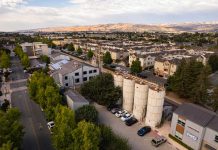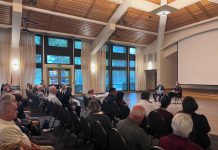Maybe your worst job ever was when you were in high school. Or maybe it was during college, or your first professional job. Or, perhaps, you’ve just retired from it. No matter. The fact is that we’ve all had jobs that in retrospect make us wince, lament or laugh out loud. Actually, a bad job should be a rite of passage. And, our “bad jobs” should be a learning experience. Bad jobs teach us humility, patience, and fortitude and how to get along with others. Most importantly, they teach us to aspire to something better.
In the mid-1940’s, our country was deeply into World War II, our nation required the wheat from our farms. During these difficult times, living in my northern Oklahoma hometown, I met a friend. He lived just down the street.
During the early 40s and after his father’s death, my friend and his mother moved into town from their farm. Nevertheless, my friend’s family still maintained their 160-acre wheat farm south of town. Actually the farm was a quarter section, a section being a mile square.
My friend, Curtis was a tall, gangling kid and very strong. Being fresh off the farm, he was not sophisticated. However, he was a likable, affable guy.
Yet, Curtis had a unique attribute. Whether it came from his genetics or the hard work of the farm or from milking cows, I know not. Undeniably during the 1940’s, however, Curtis had the strongest grip of anyone in my high school. Should you shake his hand, you would be sorry. He could break your hand maintained the rumors.
His fame grew. And, as time passed, Curtis became known as “The Clamper.” Later, as his prowess expanded throughout Northern Oklahoma, his moniker became simply, “Clamp” or “Clamper.” It remains so today with those who know him well.
In the late 40s, almost everyone in high school had a job. I was no different. I worked at the local Royal Crown bottling facility. Because I had not been alert when a case of “Royal Crown” bottles landed on my finger tip, severely damaging it, I decided to quit the bottling company and forge ahead to another job.
Fortunately at this time, my friend, “Clamp,” urged, “Come to the farm. Help bring in the wheat.” Of course, he was my friend and I said, “Yes.” Lucky me.
Southwest of our town spread Curtis’s family wheat farm. And, I went to my destiny.
Farm machinery had already formed bales of hay in the fields. Next in order, “Clamper” hired me to put those bales of hay on a four-wheeled, low-bed trailer pulled by his Minneapolis-Moline tractor, powered by Butane. When the trailer was full, “Clamp” pulled the hay baler trailer to the hay barn.
He, “The Clamper,” drove the tractor that pulled the low bed. I, the field worker, performed the hay to trailer job – in 100-degree weather.
Was this global warming? Not likely! Seasonal changes have occurred for millions of years. But, the weather was hot!!
In the 1930’s and 40’s, it really got hot! We certainly had so-called “global warming” in Oklahoma back then. Nevertheless, most days in July and August recorded over 100 degrees. In Enid, our grass yards, front and back, turned white and burned up. The sun rose hot – and the temperature got hotter each hour. Summers were vicious. To work in the fields was dreadful.
Perhaps, you remember the “Dust Bowl” which caused thousands of “Okies” to come to California.
That summer, I became a wheat farmer person utilizing a “hook.” To pick up bales of hay, it was necessary to grasp a tool for the purpose. Actually, a handle with an extended hook. And, with that hook, I could jab the bale and forcefully whisk it up on my hip, then with a great huff and puff, thrust the bale onto the low bed trailer.
I worked only one day for “The Clamper.” I thought I would die from strain and heat.
Perhaps, then, it is no surprise that Curtis, with his clock-work mind, became a banker with an Enid bank and later, the President of the Bank of Drummond, several miles west of Enid. Obviously, he knew how to manage others.
The fact remains, however, that Curtis Horrall is still my very good friend.
Well, no matter, I still say that he hired me for the worst job I ever had!
Burton Anderson, a U.S. Marine veteran of the Korean War, has lived in California for about 50 years. He has a background in aerospace industry. He can be reached at ba****@*ol.com.







